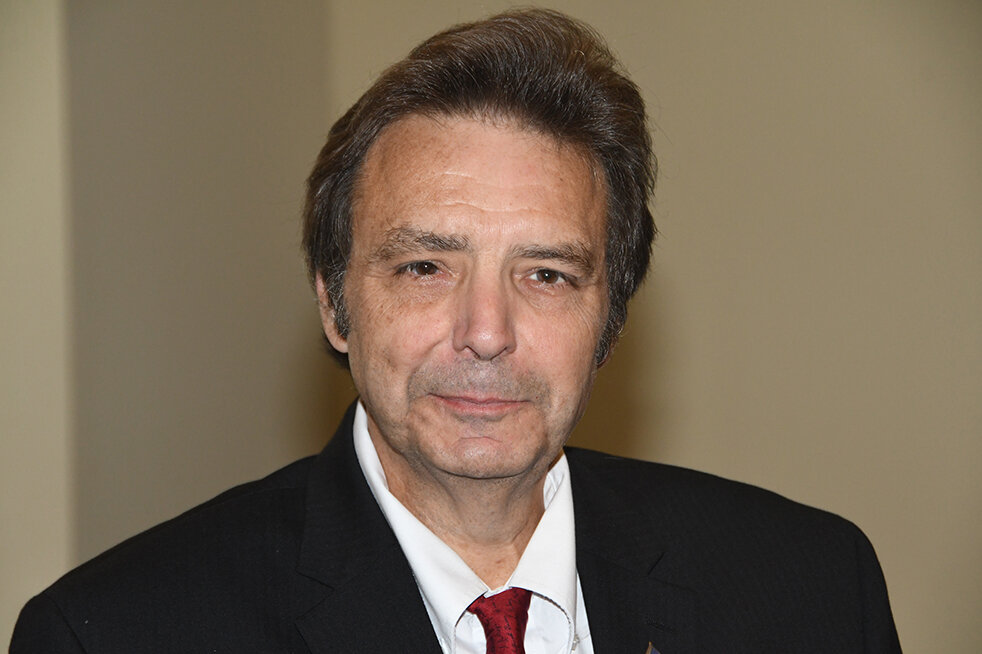Hoff: Winning the propaganda war for freedom
Dr. Samuel B. Hoff is a George Washington Distinguished Professor Emeritus of history and political science at Delaware State University. He has taught and published extensively about the American Founding period.
Propaganda is information advanced in one form or another to promote a cause or position. While many regard its use with disdain, such material has historically not only been a critical tool of American government but provided the impetus for independence in the first place.
During the era of the American Revolution — broadly encompassing the period from 1763 through the official end of the war 20 years later — opponents of British control over the Colonies employed several forms of communication to convince others. First, Colonial newspapers appeared regularly since the early part of the 18th century. They included important speeches and letters arguing for more freedom. Likewise, they often contained political cartoons, which became an influential tool for persuasion.
Another form of disseminating information during this period was the broadside, a one-page handbill often utilized for announcements and recruiting but also to sway opinion. Third, a longer form of message was the pamphlet, in which the author could elaborate on views.
The American Founders knew the importance of legitimizing actions through words. At each major juncture of contention with British authorities, individuals or groups documented disagreements and justified their stance.
After the war between France and Britain ended in 1763, Colonists tolerated the Royal Proclamation Act imposed that year, which limited Western settlements. Further, they accepted the Sugar Act, which placed a tax on that condiment in 1764. However, when the British forced the Stamp Act on the Colonies in 1765, there were organized protests that culminated in the Stamp Act Congress. That body released a statement of protest against the tax on all paper products, which led the British to repeal the Stamp Act within a year.
Britain did not wait long to ratify another law meant to raise revenue. In 1767, the Townshend Acts established taxes on several items. This law precipitated multiple methods of protest by the Colonists, including boycotts and public demonstrations, as well as smuggling. During this span, Colonial legislatures often released resolutions outlining objections to new laws, which were disseminated via the aforementioned devices.
After the killing of five Colonists by Britain in Boston in 1770 — subsequently dubbed the “Boston Massacre” — the criticism of the event was so severe that Parliament suspended several taxes left over from the Townshend Acts, while reducing the tax on tea. Over the next three years, American rebels repeatedly complained about the tea tax, then dumped hundreds of cases of tea in the Boston harbor in December 1773.
The British response to the so-called “Boston Tea Party” — in which the crown closed the port of Boston, placed Colonies under martial law and summarily executed troublemakers — solidified the American call for independence. Following the initial meeting of the Continental Congress in 1774, another group resolution was promulgated against England. When the Second Continental Congress was formed in 1775, war with Britian was imminent. Noteworthy among the subsequent calls for freedom was Thomas Paine’s pamphlet, Common Sense.
For supporters of the American Revolution, the ultimate propaganda piece was the Declaration of Independence, released in July 1776. True, it was written to justify what had already started. And, admittedly, the document did contain complaints found in previous protest dispatches. But, uniquely, it enunciated timeless principles and ideals.
By definition, propaganda is biased and, therefore, divisive. However, that does not diminish the utility of such information for supporting one’s ultimate goals. In contemporary times, there is a negative connotation to its reference. Too bad, since effective and successful deployment of various forms of mass messages among American Colonists fostered the freedom we still enjoy today.
Reader reactions, pro or con, are welcomed at civiltalk@iniusa.org.







